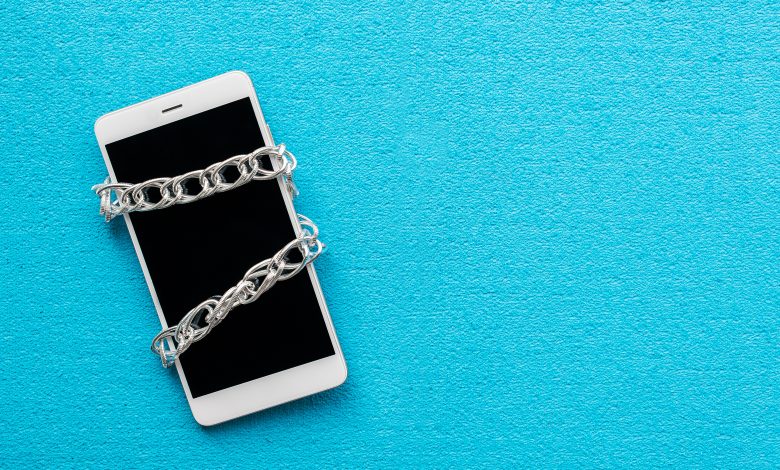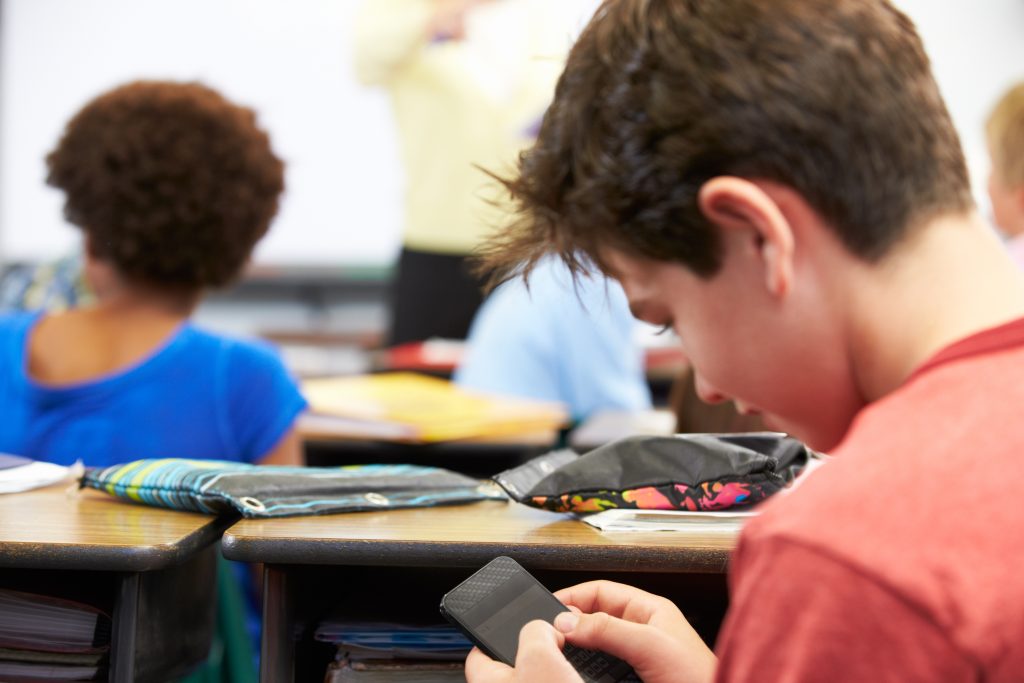National’s controversial cell phone ban
Banning cell phones in all schools is the latest policy in National’s education plan to raise eyebrows among educators.

Mid-last week, National Party leader Christopher Luxon confirmed their plan to ban all cell phones in schools, prompting a flurry of discussion across the country. Many education leaders are calling such a policy unnecessary.
Luxon cited declining achievement rates as the reason behind the move. He said the policy would see full day bans of cell phones at primary, intermediate and high schools. Students with accessibility and health issues would be exempt from the ban. Enforcement and penalties for breaking the ban would be left to individual schools.
Read the Term 3 edition of School News HERE
“Our major problem in New Zealand is student achievement… I am here to improve academic achievement for our kids so they are set up for a much better future. Phones are a massive disturbance and distraction and we’re going to take it off the table,” Luxon told Breakfast.
The policy states that students who require cell phones as an aide to learning, or for health purposes, would be exempt from the ban. Parents would be expected to contact their child during school hours via the school office.
But Education Minister Jan Tinetti called the policy “unnecessary”, stating the policy “shows a lack of understanding of how schools operate in New Zealand.”

Tinetti said that a ban on phones in schools would undermine schools’ individual decision-making.
Papatoetoe High School Principal and Secondary Principals’ Association Vaughan Couillault agreed with Tinetti, telling AM that centralised control over phones in schools wasn’t needed as many schools had their own policies.
Couillault added that at his school, phones were sometimes needed to complete classwork and assignments.
“In some lessons they’re away and you don’t see them the whole lesson and other lessons they might be engaged in videoing [a classmate] doing a speech or performing at sport.
“A piece of legislation that bans [phones] won’t instantly stop [inappropriate use] overnight, it will create conflict, it will create a legal requirement for us to confiscate rather than to educate and train students on how to use things appropriately.”
Couillault added that enforcement would also be an issue, and the compulsory nature of such a ban would create huge burden for some schools.
Although many schools already have cell phone bans in place, some schools such as Albany Senior High School have a “sensible use” policy instead.
Albany Senior High School Principal Claire Amos told the New Zealand Herald that “we are supporting young adults to self-manage, so they should have their phones but also learn how to ensure they don’t become distractions.
“Students have a lifetime of device ownership ahead. I think we need to be realistic that they can be learning tools and that young people can learn to manage them.”

President of the New Zealand Principals’ Federation Leanne Otene added that schools are already managing the use of cell phones, instating bans where necessary. Bans and cell phone use should be “applied with common sense,” she said.
In secondary schools, Otene added that rangatahi needed tools to manage their digital wellbeing, and a cell phone ban would be ineffective in that context.
International evidence is mixed as to the efficacy of cell phone bans. Earlier this year, UNESCO released a report on technology in schools, calling for a “learner-centred” approach to education that ensured face-to-face contact and the social dimension of learning was not uprooted or supplanted by technology.
The report found there was little evidence to support the benefits of technology in the classroom, despite widespread uptake in the OECD. It stated there was a “negative link” between excessive digital presence and student performance.

Meanwhile, other evidence on cell phone use is mixed. There are cell phone bans in several countries, including France, Australia and China. But some experts conclude that cell phone bans are ineffective because there is an issue of enforcement. Bans are not enforced equally across schools, or even across classrooms within schools.
Of the studies available, one found a slight link between mobile phone bans and improved academic achievement, though this relationship did not hold true for top achieving students.










It’s not the use of cellphones that is creating low attainment to in schools, but the terrible curriculum and lack of creativity being offered to students. There should be more emphasis on future focused learning.